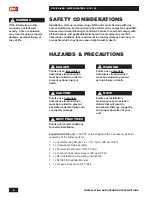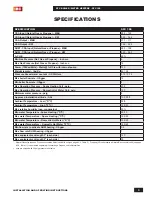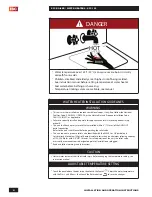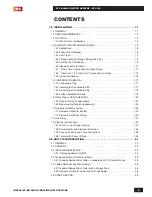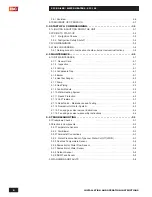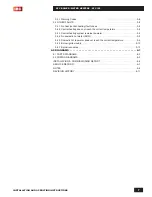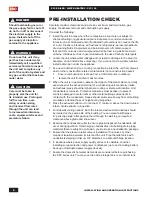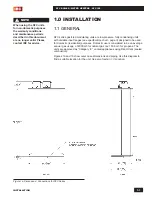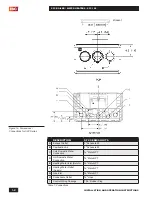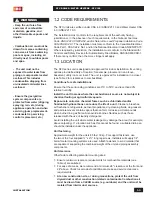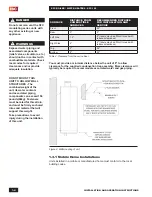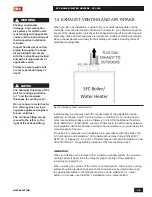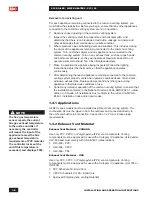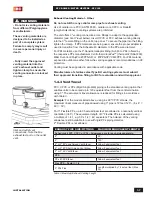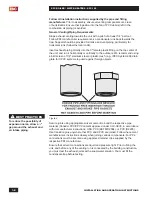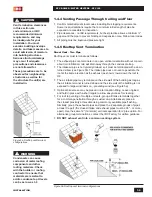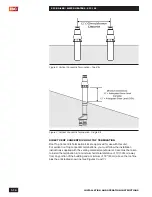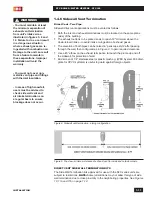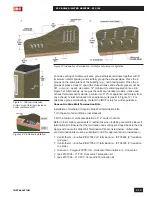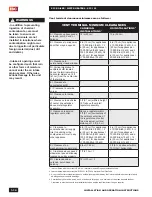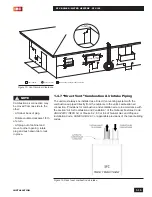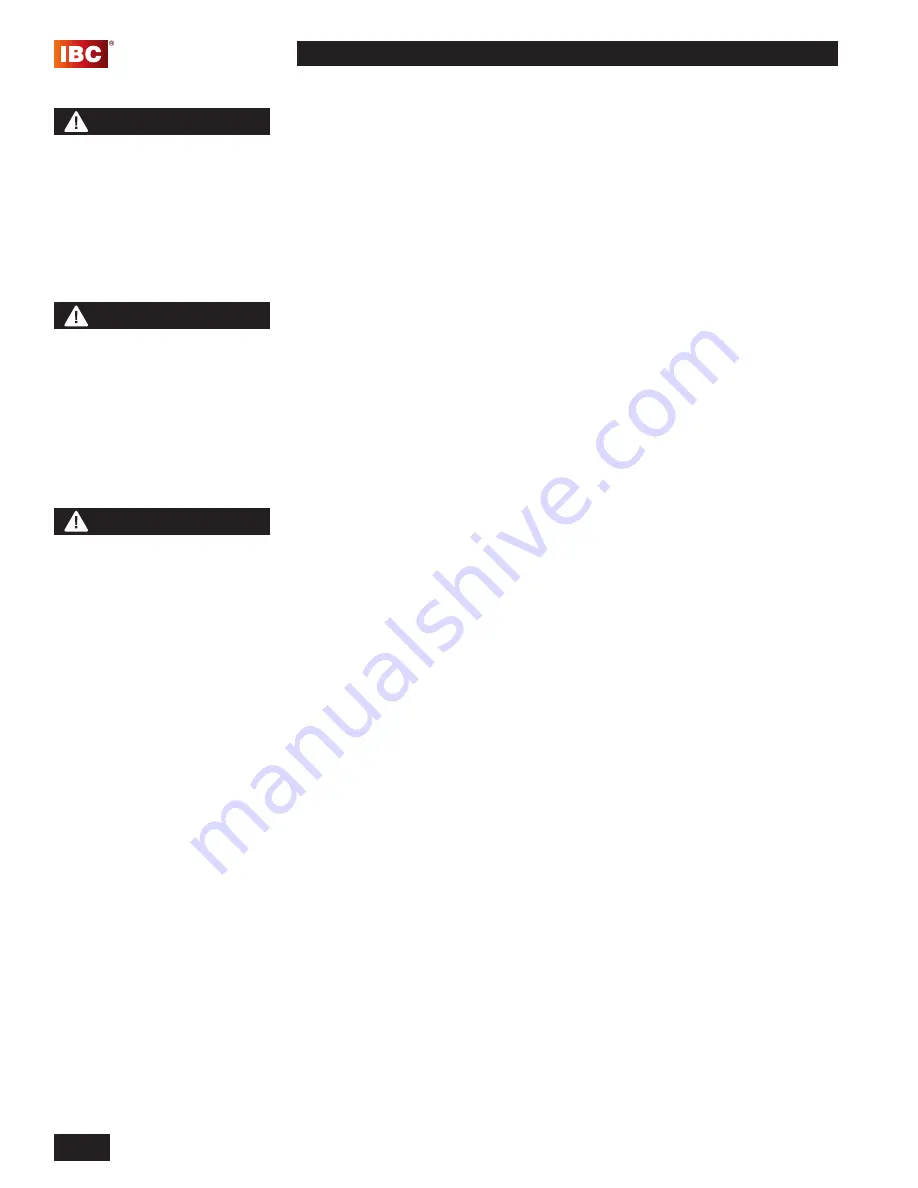
INSTALLATION AND OPERATION INSTRUCTIONS
8
SFC BOILER / WATER HEATERS - SFC 199
PRE-INSTALLATION CHECK
Carefully consider clearances and access, vent travel and termination, gas
supply, condensate removal and combustion air supply.
Consider the following:
•
Install the unit in areas where the combustion air source is not subject to
chemical fouling or agricultural vapours. Exposure to corrosive chemical
fumes such as chlorinated and/or fluorinated hydrocarbons can reduce the life
of a unit. Cleaners, bleaches, air fresheners, refrigerants, aerosol propellants,
dry-cleaning fluids, de-greasers and paint-removers all contain vapours
that can form corrosive acid compounds when burned in a gas flame. Avoid
airborne chlorides such as those released with the use of laundry detergents.
•
Locate the unit where water leakage will not result in damage to the area (for
example, do not install above carpeting). If you cannot find a suitable location,
install a drain pan under the appliance.
•
At a new construction site, or during renovations, protect the unit from drywall
dust or other construction related contaminants (not a construction heater).
•
Ensure combustion air is drawn from a CLEAN source (outdoors).
•
Isolate the unit from interior dust sources.
•
When the unit is in operation, assess the impact of the steam plume normally
experienced at the exhaust terminal of a condensing unit. Generally, intake
and exhaust pipes should terminate at a rooftop or sterile wall location. Unit
condensate is corrosive. Protective measures must be taken to prevent
corrosion damage to metal roofs or other metal building components in
contact with the condensate. Keep exhaust plumes well away from all building
air intakes including those of neighbouring properties.
•
Place the exhaust outlet so it to reaches 12” minimum above the down-turned
intake. Avoid exhaust re-ingestion.
•
For sidewall venting options: Both the inlet and exhaust terminations should
be located on the same side of the building. You can elevate both pipes
in “periscope style” after passing them through the wall to gain required
clearance above grade and snow level.
•
Examine the condensate outlet to ensure proper disposal of condensate will
occur during operation. If discharging condensates into building drain piping
materials that are subject to corrosion, you must use a neutralization package.
•
Ensure that the pressure relief valve is installed with no valves or other
means of isolation between its inlet and the unit. Pipe the relief valve with
unobstructed piping (minimum 3/4” diameter) to a safe discharge location.
•
In locations where power supply quality varies or is unstable, consider
installing surge protection and power conditioners (up to and including battery
back-up uninterrupted power supply devices).
•
Ensure the domestic hot water demands are considered before purchasing
the SFC series unit. You may need to add a storage tank or an indirect tank.
CAUTION
Care must be taken to
properly size the unit for
its intended use. Prolonged
full fire run time, over-
sizing or under-sizing,
and incorrect flow rates
through the unit can lead
to increased maintenance
costs, equipment stress and
premature failure.
WARNING
Do not use this unit if any
part has been under water.
Immediately call a qualified
service technician to inspect
the unit and to replace any
part of the control system and
any gas control that has been
under water.
DANGER
Should overheating occur or
the gas supply fail to shut off,
do not turn off or disconnect
the electrical supply to the
pump. Instead shut off the
gas supply at a location
external to the appliance.


